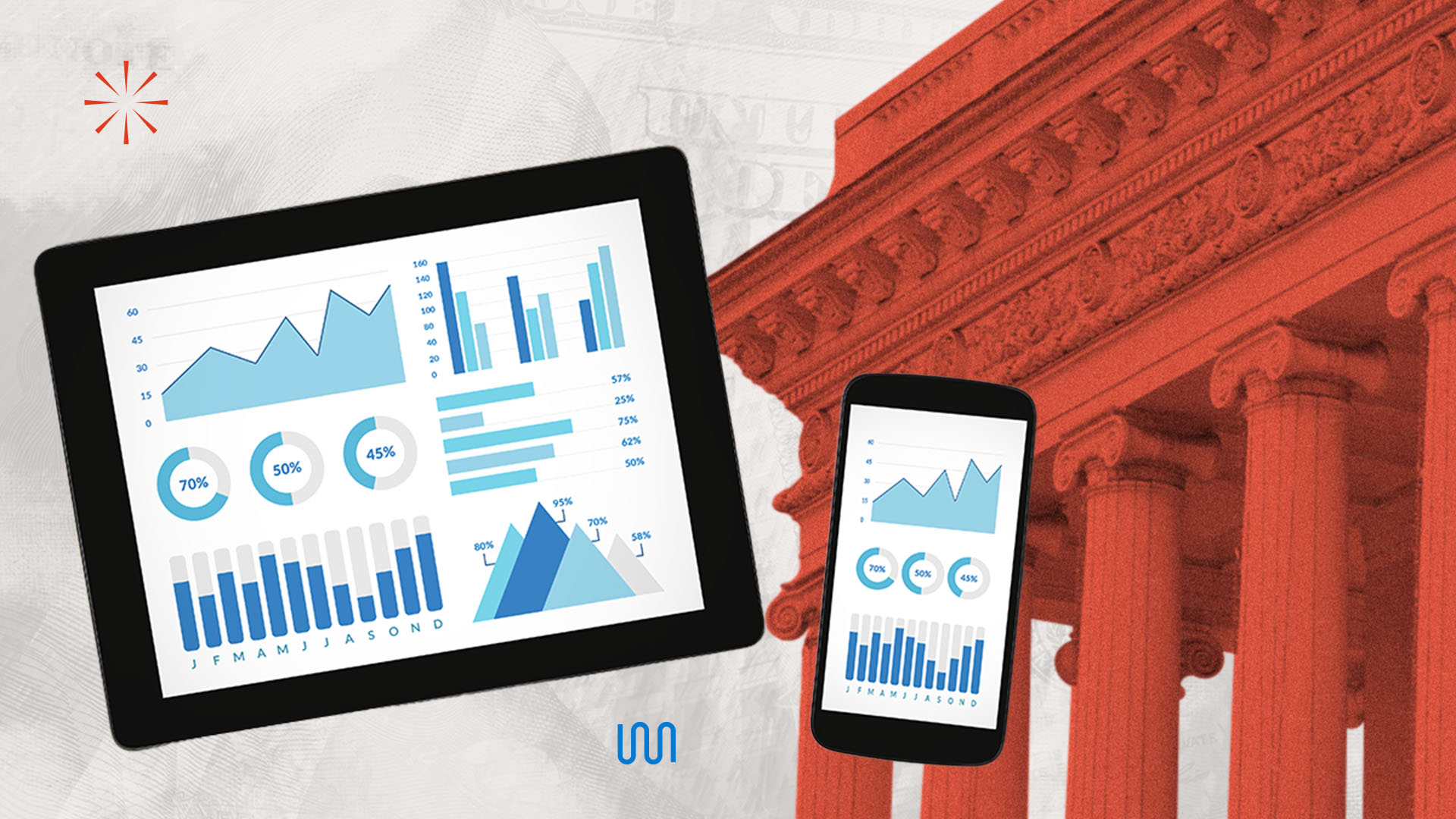
What Is Digital Wealth Management & How to Stay Ahead
Wealth management has historically been an industry that thrived in a face-to-face environment. Whether managers have been meeting with clients to onboard, educate them on, or adjust their investments (or simply filling out the reams of paperwork and keeping up with ever-increasing regulations) managing wealth has best been done across a desk, with a personal touch.
Now digitalization and the pandemic transformed other market sectors. An increasingly younger set of investors demand more efficient, affordable, and accessible financial services. Wealth managers have felt the pressure to adapt or fall by the wayside.
The new digital wealth client wants personalization without all the hassle. They want the best of data-driven, robo-investing alongside hard-won human expertise — and they want this available on multiple channels at any time of day.
For firms that offer fintech services, the payoff is big, with huge growth across the sector. Firms that don't offer fintech lose out, with 77% of firms in the US and Canada reporting lost business due to inadequate digital offerings.
How can existing wealth management firms combine their legacy offerings with the latest digital options to stay ahead of the curve? Below are some strategies to maximize your digital wealth management system to remain relevant in a rapidly-shifting financial ecosystem.
What is digital wealth management?
Digital wealth management takes the business of growing investment out of the cumbersome world of paper and into financial tech. It can harness the power of AI, automation, and computing to streamline services. Digitizing wealth management gives financial advisors the tools they need to make investing accessible, affordable, and efficient for many customers, creating a seamless user experience that empowers clients to educate themselves and grow their wealth.
Adopting digital wealth management might look like welcoming new clients to your system via an easy-to-use app. They can input their data, upload their documents, and chat with an advisor about questions online. From there, advisors can meet with the client via videoconference to discuss their long-term and short-term investing goals and questions. Or, if the client prefers, they can use robo-advisers to harness the data they've provided and create an automated passive investment plan that reaps steady returns. Either way, the wealth manager can use AI-based tools to read all relevant customer data. With that, they can create an investment profile keyed to the client's goals and openness to risk. The whole system can operate on the blockchain, where the firm can keep and balance the client's books. Finally, firms can take advantage of e-signature and remote online notarization to digitize the once-onerous in-person process of verifying identity and documents. At the same time, they can protect their client's security from data breaches. That system can run largely on its own. It corrects for mistakes and reinvests dividends. That leaves advisers free to focus on more substantive strategies for growing client wealth.
In short, digital wealth management uses the power of data and automation to create ideal investment portfolios for clients. It lowers the cost of investing and allows advisors to focus on what they do best: meeting the human needs of the client.
What is the purpose of wealth management?
Across the world, workers rely on wealth management to supplement income and plan for rainy days and retirement. Historically, employers bore the brunt of investing in an employee's retirement fund and pensions. Still, as this practice became less effective and the ROI decreased, employees became more active managers of their future. As a result, the average person needed much more financial literacy and help to invest, manage, and plan for their future.
The role of a financial advisor is to provide the best tools, education, and guidance to help their clients meet the financial realities of the times. Today's financial reality includes increasingly digital markets. Digital wealth management offers low-risk, rational, and diversified portfolios and accessible, intuitive platforms. It's the best way to help the most people grow the most wealth.
What are the benefits of digital wealth management?
In digital wealth management, the client clearly benefits, but so does the advisor. Creating a hybrid management system that combines the best of automation with the best of human expertise creates less stressful, more effective investment environments. That allows advisors to excel.
- Seamless client onboarding. With the rise of remote work and a younger investing class, few people want to take the time to make an in-person appointment with a wealth manager, fill out a stack of forms, and wait to hear back. With digital wealth management, clients can enroll using an app that collects and analyzes all their data and identity. It can also educate them on wealth management and connect them with an advisor who can answer their questions. Do all of that without any appointments or unnecessary hassle.
- Flexible portfolio construction. Using the power of AI, digital wealth management systems can analyze all the data a customer gives them. That might include anything from their financial statements to their spending habits. With it, the systems can assess risk, diversify portfolios, and create investment plans tailored to the unique goals and personas of each client. An AI won't get hampered by emotion or gaps in the data. Plus, if the portfolio gets imbalanced or client goals change, the digital system can rebalance itself seamlessly to reflect that.
- Data-driven risk monitoring. Investment is always a risk. However, that risk should be balanced by the likelihood of reward and the investor's risk tolerance. With digital wealth management, AI tools use data—not guesswork or human emotion—to read all inputs from a client's life. It creates a portfolio that reflects their financial persona and minimizes losses.
- Streamlined operations. Gone are the days when advisors filled out repetitive paper documentation and pieced together ad hoc regulatory provisions. With digital wealth management, all financial processes occur in one central location. Whether that is on the blockchain or in a native cloud, it can minimize redundancies and increase efficiencies.
- Focus on growth-related activities. Financial advisers spend an excessive amount of their time on paperwork and processes that a computer could do. With AI and machine learning technologies, those routine processes can be automated. That frees advisers to focus on creative growth strategies and client relationships. They can bring their human expertise to bear on investing.
- Improve client expectations. Today's wealth management clients expect accessible, affordable, and transparent investment options. They want to be able to engage with their portfolios across multiple platforms. With digital wealth management, you can harness the best of the digital and the human to provide clients with a low-cost, omnichannel investing experience designed to maximize their wealth, leading to happier, more engaged clients.
3 tips to help wealth advisors stay competitive
Digital wealth management doesn't have to be overwhelming. Keeping these three simple principles in mind will help you thrive in the transition.
- Having a customer-centric approach. Just because something is digital doesn't mean it's not personal. In fact, the whole point of digital wealth management is to increase the personalization clients crave. Be ready with a whole spectrum of digital and human options to meet clients where they are and help to identify and achieve their financial goals.
- Having a hybrid/omnichannel approach. Digitalization is inevitable, but not every customer is equally comfortable with going online. Some of your clients will be technophiles, and some will be late adopters. Make sure you have a system that speaks to all of them by maintaining a multichannel approach that allows each client to engage how, when, and in what way they want.
- Value through automation. One reason the wealth management industry has been so resistant to positive change is that it's bogged down in complicated paperwork and manual infrastructure. Digitalization can help streamline and automate those structures.
How Notarize can help with digital wealth management
With advances in digital technologies and the law, it's now possible to verify and secure your clients' identity and data without cumbersome in-person appointments with notaries and lawyers. With remote online notarization offered by Notarize, you can simply sign and verify digital documents online. Our worldwide team of commissioned notaries is available 24/7 to document and vouchsafe your most important financial transactions, promising you security and safety in minutes rather than days or weeks.


